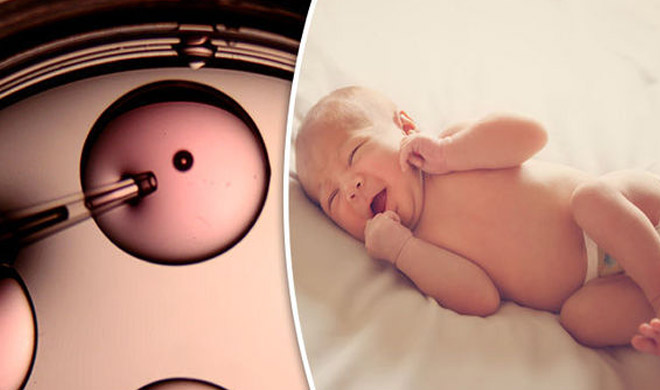Learn how IVF-born children do not differ from other children
The findings showed that children born via sperm donors have special health needs compared to children born with normal pregnancies, but children born with IVF technology generally lead to healthier lives.

New Delhi: IVF is a technique under which artificial insemination is performed in infertile women . IVF is considered to be an effective technique for relieving infertility. This technique is used in women who cannot give birth to their children in a natural way. A recent study states that babies born with IVF technology are as healthy as babies born through natural pregnancies.
The Australia's Madrek Children's Research Institute (MCRI) has said in its study that IVF-born children are physically, mentally and emotionally healthy like other children by the time they go to school. Chief researcher David Amour said the result is comforting for parents of IVF children, as the number of sperm donor-born children has doubled in Victoria since 2010.
Amor told the Australian media on Wednesday, presenting their report, "Women and couples take a lot of thought and effort while choosing a sperm donor. There is a lot of investigation into the selection of sperm donors who also provide IVF services." - test and sort it. "
For this research, 224 women of Victoria who gave birth to children with IVF technique were asked some questions related to their children and their own health.
The findings showed that children born via sperm donors have special health needs compared to children born with normal pregnancies, but children born with IVF technology generally lead to healthier lives.
Note:- If you have questions in your mind related to IVF Treatment and Test Baby Centre in Delhi then contact us at KJIVF or you can call us on :- +9196507 25386, +91 011 22503927 .
The Australia's Madrek Children's Research Institute (MCRI) has said in its study that IVF-born children are physically, mentally and emotionally healthy like other children by the time they go to school. Chief researcher David Amour said the result is comforting for parents of IVF children, as the number of sperm donor-born children has doubled in Victoria since 2010.
Amor told the Australian media on Wednesday, presenting their report, "Women and couples take a lot of thought and effort while choosing a sperm donor. There is a lot of investigation into the selection of sperm donors who also provide IVF services." - test and sort it. "
For this research, 224 women of Victoria who gave birth to children with IVF technique were asked some questions related to their children and their own health.
The findings showed that children born via sperm donors have special health needs compared to children born with normal pregnancies, but children born with IVF technology generally lead to healthier lives.
Note:- If you have questions in your mind related to IVF Treatment and Test Baby Centre in Delhi then contact us at KJIVF or you can call us on :- +9196507 25386, +91 011 22503927 .
Comments
Post a Comment